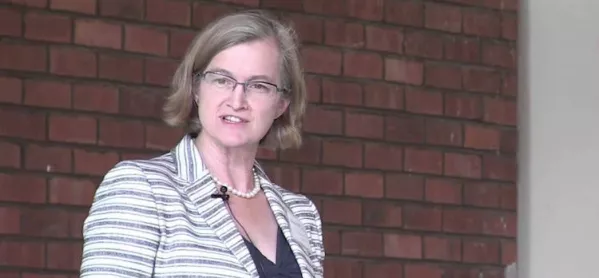A national newspaper has just published a list shaming England’s “worst” 364 primaries.
These schools had actually missed a Department for Education floor standard, heavily dependent on raw test results, which took only limited account of the context they work in.
Justifiably angry critics condemned the “disgraceful story” as “reductionist nonsense” that “made things harder for the teachers, governors and pupils in those schools”.
But it isn’t just newspapers. One of the school system’s most powerful figures also just doesn’t seem to get the link between pupil background and results - or else she is pretending not to.
In the speech that accompanied her second Ofsted annual report, chief inspector Amanda Spielman, talked of “almost 500 ‘stuck schools’ that have never been judged ‘good’ in over 10 years, trapped in a cycle of underperformance”.
She said that what made “the inequity even starker is that many of these schools are concentrated in particular parts of the country, serving the same demographic groups - often the white working class”.
Ofsted is part of the problem
But if you have a deterministic, results-focused inspection regime that largely ignores context then is it really a surprise that lots of schools serving pupils from one of the statistically academically lowest achieving groups in society can’t get “good” verdicts? Yes, there will be admirable exceptions, but they are just that - exceptions.
The “problem” Ms Spielman identifies is an inevitable result of the way that Ofsted judges schools. But it is one she will not acknowledge.
“I make no apology for not giving these schools an easier judgement,” the chief inspector said. “I would never want us to be saying that this education wouldn’t do for Chelsea children, but it’s good enough for Grimsby.
“The moment we allow for a different quality of education based on demographics is the moment we concede defeat in the battle for equality of opportunity.”
A “quality of education” judgement will be key in a forthcoming inspection overhaul that Ms Spielman says will place less emphasis on exam results. But her use of the same phrase to defend the current regime does not inspire confidence.
Her blanket condemnation of the “quality of education” in these schools would only be fair if demographics did not play a part in outcomes - if results, and therefore Ofsted verdicts, were just down to the quality of teaching and had nothing to do with pupil background. And as anyone who works in schools knows, that is simply not the case.
This is not just about being rhetorically unfair to schools serving tough areas. Ofsted’s failure to admit the undoubted link between results and home background makes the reality for these schools and their pupils much, much worse.
Elsewhere in her speech, the chief inspector noted that “turnaround rates” in “inadequate schools” remained too slow; that schools were being “left in limbo” because academy sponsors could not be found for them. Her annual report warned of a “worryingly thin” leadership capacity for such schools.
But would you want to sponsor a school, or indeed lead it, if you knew that its local reputation was already destroyed by a poor Ofsted verdict - which took little account of context - and that its intake would give it a huge handicap in attempting to get a better one?
Obviously joining the dots on these points could be a difficult line for an Ofsted chief to take. Not only would you be admitting the flaws in your own inspectorate’s approach, you would also leave yourself vulnerable to being accused of excusing poor results. But by omitting to mention the part that Ofsted’s stance of not taking into account pupil background plays in keeping these “stuck” schools stuck, Ms Spielman has ignored a key cause of the problem.
The chief inspector successfully used her speech to argue that schools should not be left to sort out society’s wider ills and parental shortcomings on everything from toilet training to obesity.
Why then does she appear so blind to the impact that home life beyond a teacher’s control will have on academic results? Acknowledging it would be admitting reality, not excusing failure. Acting as if it does not exist risks contributing to a spiral of decline in failing schools that only worsens the plight of their pupils.





